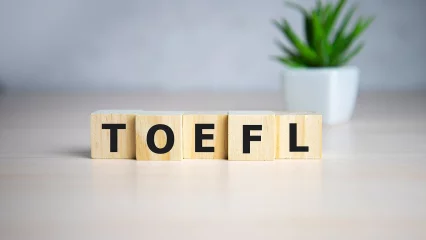There are many GRE prep books and online courses available – so what makes a good GRE prep course?
It’s a fair question. We wrote this post to walk you through what we do differently at Achievable and how we rethought GRE test prep for the 2020s. We’ll share what we learned in our research of other GRE prep courses and the choices we made to improve upon their offerings.
Learn to drive
Most test prep companies accept the test at face value. They teach students math in order to better their quantitative reasoning, or argument building in order to improve their analytical writing. The assumption, of course, is that teaching the math, verbal, and writing skills that are the foundation of what’s on the exam will lead to higher scores. However, this isn’t always true — and, even if this process works, it’s decidedly an indirect route to score improvement.
Rather than teach students the underlying concepts, test prep needs to focus on helping students answer more questions correctly. In other words, it takes a more direct route to score improvement. At the end of the day, it isn’t necessary that students understand why something works — just that they understand how to use it.
This is the difference between studying how an engine works versus learning how to drive a car. In fact, knowing how an engine works typically does not correlate with better driving. At Achievable, we’re here to raise your scores as much and as quickly as possible, via the most direct route possible.
Bring base rates to the forefront
Many GRE prep books are written like textbooks: they generally cover the various subjects evenly and treat all topics as if they’re equally likely to occur. However, this is far from how the GRE is structured. On the quantitative section, for instance, certain question types are literally one-hundred times more likely to occur than others. Under these conditions, it’s wasteful and ineffective to allocate time and attention evenly over all of the GRE subject matter.
The way to correct this problem is by bringing base rates — the likelihood of encountering a given question type on the day of the test — to the forefront of the process. High base rate question types should have precedence and priority in the textbook, and should occur more frequently in simulated exams. In this way, students practice with materials that reflect the test as it truly is — key for making the most of your study time and getting the best score on test day.
Use diverse content
Practice questions and full practice exams are crucial to any test preparation process because they translate knowledge into action. Naturally, every test prep company worth its salt will include practice problems to supplement its content. However, these companies only offer a limited number of questions, and many students exhaust the available resources long before they feel prepared to sit for the exam.
Students should never run out of new material. How? Dynamic templates out of hundreds of problems are essential for this. Every quantitative question and a substantial amount of our verbal questions are completely randomized, so it is different every time you see it. This means Achievable includes a limitless supply of high-quality quantitative problems by default. By approaching the same type of problem from multiple different angles, students improve their ability to flexibly generalize strategies and techniques under simulated testing conditions.
Present the objective difficulty of the test
This is a big one. Since most test prep companies base their materials on what the test could look like — rather than on what the test actually does look like — their practice tests often misrepresent the difficulty level of the exam. In some cases, this means that their materials are too easy. When this happens, students develop a false sense of confidence relative to the exam that can contribute directly to unexpected and underwhelming results.
On the other hand, some publishers make their materials too hard. These companies generally make their money by selling monthly subscriptions. So inundating students with “impossible” or “devilish” problems can keep students coming back for more.
Instead, simulated exams should mimic the actual difficulty of the test as closely as possible. This provides students with a valid test-taking experience which generalizes more seamlessly to the actual exam.
Provide individualized writing feedback
Most test prep companies teach the writing section as if it were an essay test. Consequently, they’ll offer you a lot of general content on how to craft a thesis statement or how to build a cogent argument. The issue with this approach is that it completely ignores how the writing section is actually graded. (Seeing a trend?)
Instead, revealing the grading rubric by which your essays are evaluated in practice does wonders. This offers students the most direct route to score improvement possible.
Having a tool that instantly evaluates student essays using the grading rubric of the actual exam is also a game-changer in test prep. This allows students to get immediate and individual feedback on their writing samples, allowing them to track their progress toward a top-percentile score.
Build vocabulary the fun way
Student vocabulary generally exerts a ceiling effect on verbal scores. That means that no matter how well students implement their vocab-based question strategies, they won’t be able to reach the highest scores unless they know most of the words involved. Other test prep companies respond to this by asking students to memorize the dictionary definitions of thousands of esoteric words. This is tedious and ineffective.
The smarter way is to use cutting-edge research in the field of memory science to create an algorithm capable of adapting to student performance in order to optimize memorization and recall of the material. This allows students to learn more with less effort and time.
Another way is to substitute the dictionary approach to vocab in favor of a process that more closely mimics the actual demands of the test: semantic clustering. This novel method of vocabulary building allows students to learn more words, more quickly — so preparing for the verbal section takes significantly less time.
Validate results
Very few prep companies collect and publish their outcome data. Achievable is different: our GRE materials were authored by Orion Taraban, Psy.D., creator of the Stellar system. Besides a doctorate in psychology, a perfect score on the GRE, and over fifteen years of experience teaching thousands of students to ace the exam, Dr. Taraban has collected and published student outcome data attesting to the effectiveness of his system: statistically significant and meaningful improvement in all three sections of the test.
Test prep is not a faith-based exercise. Score improvement is the expected return on the investment of your time, energy, and money. And while past performance is not a guarantee of future outcomes, empirically-validated effectiveness and a demonstrated track record do much to increase the likelihood of positive results. Go with what works.
A version of this article was originally published by Achievable.



